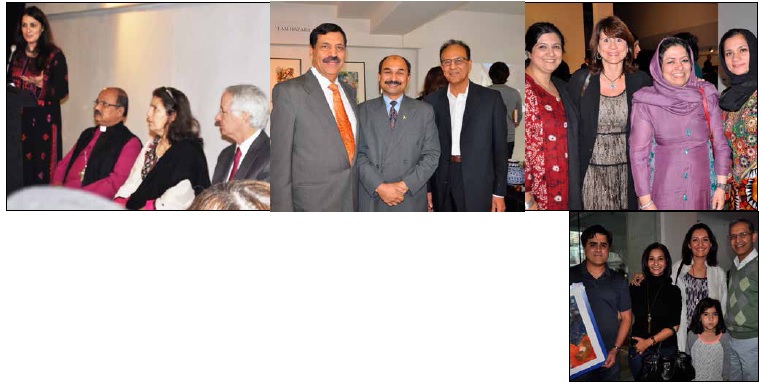Confronting Rising Religious Intolerance in Pakistan
By Amin Haq

“So tell me how does it feel to be Hazara in Pakistan?” asked Hina Abidi, President of the Pakistan Arts Council, of a twenty-three year old Hazara man. He replied, “Baji, it is like being a chicken in a coop waiting to be slaughtered. Like chickens we huddle together and when that menacing hand of the butcher reaches in, we flutter and shriek and watch in horror as members of our community get violently murdered in front of us. But unlike the chicken we feel. We feel relieved to have been spared this one time and severe guilt later for feeling relief.”
Trauma, relief and guilt. These are the repetitive emotions that the Hazara people of Pakistan endure. Remarkably, in spite of suffering great harm, the Hazara people have not become violent. The victims of carnage have not become victimizers. As one has seen with the victims of drone attacks, who get recruited to become suicide bombers, the Hazara people have chosen to end the circle of violence, rather than continue it. And in this exercise of freewill, wherein a person chooses a path of non-violence over more murder and mayhem of innocents, lies an enduring lesson for all others in the exercise of being human.
What the Hazara people seek is not revenge. Because revenge cannot bring back the dead nor can it undo the harm caused by the murderous acts of terrorism. What the Hazara seek is far more enduring, powerful and galvanizing: an acknowledgement of the suffering and the harm caused to their people by way of religious intolerance and a protection of their human rights by the majority.
The medium of communication chosen by the Hazara people is the arts. Poetry, and in particular abstract painting, are used to communicate their feelings of fear and isolation. Mr Fazil Hussain Mousavi runs an art school in Quetta for Hazara victims of violence. His school is called Sketch Club. The catharsis is evident in the art form produced by the students of Sketch Club. The reds are deep and gush out like drawn from a fresh hewn wound.
Mr Mousavi is himself a victim of violence. His two children are survivors of a suicide bomb blast which was targeted towards a school bus carrying Mr Mousavi’s children and several others their age. The art school came together as a means to overcome fear and anger through artistic expression. Mr Mousavi believes that politics, and in particular vitriolic political slogans, alienate others rather than induce an engaging conversation conducted in a civilized manner. Mr Mousavi believes that the subtlety of art awakens the viewer and reconnects one with his own humanity.
The Pakistan Arts Council of Los Angeles, with the generous support of the Los Angeles Police Department, successfully brought together various members of the Pakistani-American community to showcase the art of the students of the Sketch Club on Saturday, November 23 rd at the Blackstone Gallery in Los Angeles. The title of the exhibit was “Confronting Rising Religious Intolerance in Pakistan.” More than one hundred art enthusiasts attended the exhibit with nearly all the art being sold within two hours of the show. The proceeds of the art sales will benefit the Sketch Club. For inquiries regarding the art school please visit facebook.com/pages/Sketch-Club/118856201470254
Back to Pakistanlink Homepage

